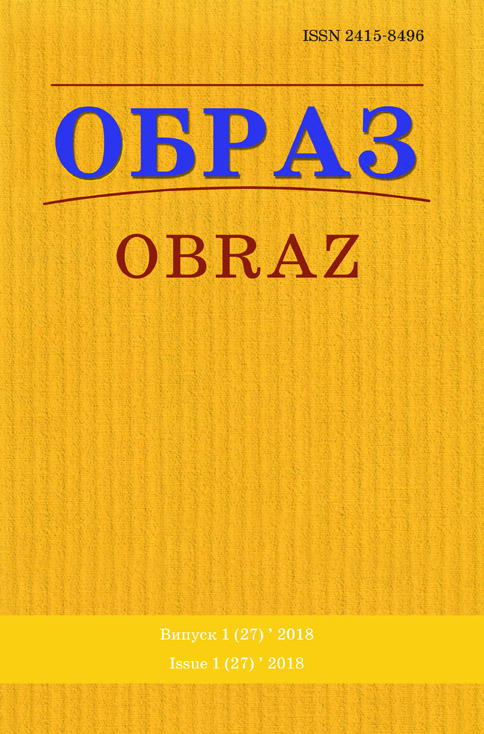Abstract
With the introduction of e-government mechanisms in Ukraine, public libraries are increasinglyinvolved in this process. Firstly, they are free and open for the public. Secondly, public libraries position themselves as modern information centers today, and therefore use
their information potential for the development of e-government, implementing the right ofevery citizen to establish electronic information interaction with state authorities and local self-government.
In this regard, there is a rethinking of the value of library institutions in the system of modern information activities. There are new scientific tasks connected with researches of the role of libraries in the system of modern social information communications, improvement of their efficiency in library information-analytical support of state authorities.
Thus, the issue of educating the population about the skills of using public information through the Internet, as well as the electronic interaction of citizens with the authorities, became very relevant for libraries. But before teaching someone first, the librarians need to
learn themselves.
Librarians should be aware of political events, state reforms, technological innovations, participate in the information support of these processes, and involve users in e-government through the promotion of knowledge.
This determines the purpose of the article – to find out the place and role of library specialists in the context of e-government development in Ukraine. To prove the necessity of professional development and retraining of library staff for their further involvement in providing e-government services.
Today the specialists of book collections should must prove that they work the most professionally with information. Their knowledge, skills, and target guides are critical factors that influence the success of the institution, the quality of the information provided and the
level of readership. It is such a specialist who can realize the concept of intellectualization of the library profession and provide high-quality information and bibliographic services in the context of the development of e-government.
In each base library, a targeted curriculum for continuing education, retraining and advanced training of staff, updating of professional knowledge of employees on modern
information.
References
1. Government - library - community: join e-government: practical guide for libraries to provide e-government services (2007), in Editor, Gich, G. M., Mikhailovskaya, T. O., Nekipelova, O. M., Tsukanova, A. E., FOP Shvets, V.D., Mykolayiv, 120 p.
2. Bilyk, O. (2011), «Libraries and issues of personnel professionalization», Bibliotechna planet [Library Planet], vol. 2, pp. 26-30.
3. To help improve the skills of library staff: method. recommendations (2012), in Editor, Fateev, V.V., Blagoveshchensk, 65 p.
4. Zahumenna, B. (2015), «Preparation, retraining and advanced training of library and information specialists at NAKKKiM», Visnyk Knyzhkova Palata [Bulletin of the Book Chamber], vol. 4, pp. 43-44.
5. Innovative forms of advanced training of library staff: method. recommendations, advice (2013), in Editor, Palatash, I. M., Khmara, I. M., Uzhhorod, 32 p.
6. Interactive forms of training in the system of professional development of library workers: methodology and recommendations for use (2012), in Editor, Kovalchuk, G. D., Kharkiv, 38 p.
7. Kuznetsova, T.Ya. (2009), «Library frames today and tomorrow: ways to solve the problem of frames who «solve everything», Scientific and technical libraries, vol. 3, pp. 7–12.
8. Matveyev, M.Yu. (2008), «Problems of the image of library science, education and profession», Scientific and technical libraries, vol. 5, pp. 80-89.
9. Novakivsky, I.I. (2011) «Distant education as an effective innovation factor in raising the level of labor potential», in Editor, Kuzmin, O. E. (Ed.), Visnyk Nationalnogo universytetu «lvivska politehnika» [Bulletin of National university «Lviv Polytechnic »], vol. 714, pp. 379–385.
10. Petrova, G. (2007), «Organization of work of the library staff in conditions of contradictions of traditional technologies with innovations», [Library Forum of Ukraine], vol. 1, pp. 36–40.
11. Petrukhno, Yu. E., «Professional values of library staff of universities: modern realities», [Library Science and Bibliography of Ukraine], vol. 65, pp. 159–161.
12. Professional development of the team. Forms and methods of professional development: methodical material (2011), in Editor, Akinfieva, O.V., Pskov, 20 p.
13. Romanyuk, O. (2011), «The system of raising the professional level of workers of public libraries in Kyiv», [Library Forum of Ukraine], vol. 1, pp. 37–40.
14. Training as one of the forms of advanced training of library staff (2010), in Editor, Leshnivska, I., Lviv, 22 p.
15. Shevchenko, I.O. (2010), «Creation of an educational space for librarians in the context of informatization of society», [Culture and Society of the XXI century], pp. 22–26.
16. «Report on the activities of the Network of access points of citizens to official information in 2009–2012», available at: http://govinfolibrary.files.wordpress.com/2012/12/report_ caps_2013.pdf .
17. «International Federation of Library Associations and Institutions. IFLA Manifesto on the Internet 2014», available at: https://ula.org.ua/252-dokumenti/dokumenti-ifla-ta-in
18. «Ukrainian Library Association. Government information for citizens in the library», available at: https://ula.org.ua/252-dokumenti/dokumenti-ifla-ta-in
19. «The Lyon Declaration on Access to Information and Development», available at: https:// ula.org.ua/252-dokumenti/dokumenti-ifla-ta-in
20. «Regulations on the forms of measures for the improvement of professional skills of library specialists», available at: http://library.karelia.ru/Bibliotekarjam/Centrprofessionalnogorazvitija_NB_RK/materia1924/
21. About Professional Development of Employees: The Law of Ukraine, available at: www. rada.gov.ua.
22. On Approval of the Concept of e-Governance Development in Ukraine: the order of the Cabinet of Ministers of Ukraine, available at: www.rada.gov.ua.

This work is licensed under a Creative Commons Attribution 4.0 International License.
